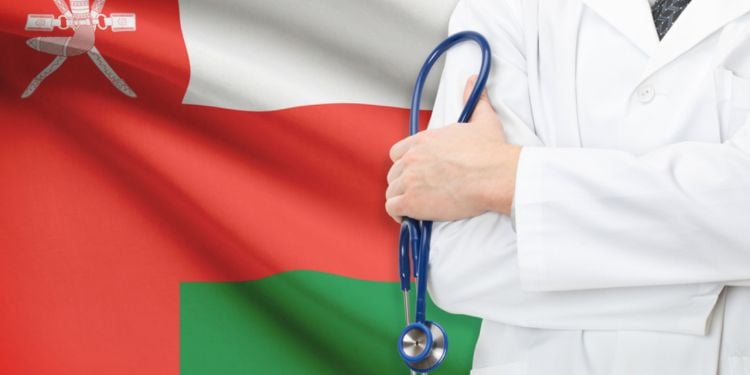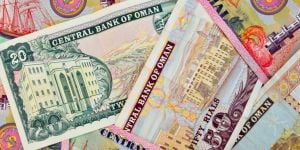
Most of the time, when securing a job in Oman, your employer will provide you with health insurance, but it is optional, even if the government is trying to force all companies to do so. Depending on the company and the position, it can be very basic or up to international standards. It is imperative to make sure what is provided covers you properly, along with your family members if you have any with you.
Private clinics and hospitals in Oman
Oman's healthcare system is a comprehensive and well-structured system that has made significant strides over the past few decades. It provides a range of services through a network of public and private institutions.
These centers provide general medical consultation, preventive support, health and child health services, vaccinations, and major diagnostic services. Public health centers are mainly for local citizens, but there are many private ones for expatriates.
Oman also has several general and specialty hospitals, providing more complex medical care, including surgical services, emergency care, and specialist consultations. Larger regional hospitals provide specialist services, such as oncology, cardiology, and neurology.
Some institutions specialize in certain diseases, such as Sultan Qaboos University Hospital, which provides cutting-edge research and specialized treatment.
The Ministry of Health (MOH) is the main government body responsible for overseeing Oman's healthcare system. It manages most of the public health facilities, including hospitals, health centers, and clinics.
Omani citizens receive free or highly subsidized healthcare services at public facilities, which cover a wide range of medical treatments and preventive care.
Oman is implementing electronic health record systems to improve the efficiency and quality of healthcare services. The use of telehealth is on the rise but still at its early stage, enabling remote consultations and follow-up care, especially in underserved and isolated communities.
Main private healthcare centers in Oman
Oman's private healthcare sector has grown significantly and complements the public health services provided by the government. Several private healthcare companies in Oman provide a wide range of healthcare services, from primary care to specialist treatments.
Muscat Private Hospital
Muscat Private Hospital is one of Oman's leading private hospitals. It offers a wide range of medical services, including general medicine, surgery, pediatrics, obstetrics, and gynecology, as well as specialized care such as cardiology and neurology.
Aster Al Raffah Hospital
As part of the Aster DM healthcare network, Aster Al Raffah Hospital operates several hospitals and clinics across Oman. These provide comprehensive healthcare services, including emergency care, surgeries, and specialist medical treatments, not to mention general medicine, pediatrics, orthopedics, dermatology, dentistry, and much more.
Apollo Hospitals
Apollo Hospitals Oman is a subsidiary of India's renowned Apollo Hospitals Group, providing high-quality healthcare services focusing on patient care and advanced medical technology. They are known for their services in areas such as cardiology, gastroenterology, oncology, and orthopedics.
Starcare hospital
Starcare Hospital is a renowned private hospital in Oman, offering a full range of healthcare services with a focus on patient-centric care. Services include specialties such as obstetrics and gynecology, pediatrics, internal medicine, surgery, and emergency care.
Badr Al Sama'a Hospital
A major player in Oman's healthcare market, Badr Al Sama'a Hospital operates multiple hospitals and clinics across the country, providing a wide range of healthcare services. They have specialties like cardiology, nephrology, urology, ENT, and others.
NMC Healthcare
As a member of the NMC Healthcare Group, they provide high-quality medical services focusing on general and specialized medical care such as maternal and child health, general surgery, orthopedics, etc.
KIMS Oman
KIMS Oman Hospital is part of the KIMS Healthcare Group, providing multi-specialty medical services and a reputation for quality care. Their services include medicine, surgery, obstetrics, and pediatrics.
Private health insurance companies in Oman
Private health insurance in Oman is offered by a range of companies to individuals and businesses. These insurers offer a variety of plans covering a wide range of medical services, from basic medical coverage to comprehensive packages that include specialist care and international treatment options.
Good to know:
Some insurance companies have special plans for domestic workers, and many have partnerships with local banks to give discounts to their customers. Note that it can be difficult to obtain health insurance for aging expatriates above 65, especially if they are on a family visa.
Local health insurance
Local health insurance companiesin Oman offer a wide range of health insurance plans, including individual, family, and group medical insurance covering inpatient and outpatient services, dental and vision, and maternity benefits. National Life Insurance (NLGIC), Al Ahlia, Oman Insurance Company (OIC), Dhofar Insurance, and AXA Gulf are the most reputed local insurance companies. Takaful Oman offers Sharia-compliant insurance products, including health insurance plans. Takaful insurance operates on the principles of mutual cooperation and shared responsibility.
Pharmacies and medication in Oman
Pharmacies in Oman play an important role in the healthcare system, providing access to a wide range of medicines, medical supplies, and professional advice. They are regulated by the Ministry of Health to ensure the safe and effective distribution of pharmaceutical products.
Many hospitals in Oman have their own pharmacies that provide medicines to inpatients and outpatients. These pharmacies often stock specialty medications that are not available at retail pharmacies. The most reputed pharmacy brands in Oman are Muscat Pharmacy, Al-Hashar, and Apollo.
In addition to the large pharmacy chains, there are numerous independent pharmacies throughout Oman. These pharmacies are often locally owned and operated, offer personalized service and access to a wide range of medicines and health products, and can be found in urban centers as well as small towns and rural areas.
Many pharmacies also sell medical devices such as blood pressure monitors, glucometers, and nebulizers. Some pharmacies allow customers to order medicines and healthcare products through their websites or mobile applications.
Good to know:
In the event you cannot find your prescribed medicine at a local private pharmacy, you should have at least three of them stamp your prescription and state that your medicine is not available before being allowed to go to public hospital pharmacies.
Things to do in case of a medical emergency in Oman
If you find yourself in a medical emergency, based on your medical coverage, ensure the closest hospital to which you are eligible to get treatment has emergency services before driving to it.
In the case of an accident or medical emergency involving another person, the first thing to do is to check if the ill or injured person can be safely moved to the hospital.
If the patient cannot move, you will have to call the emergency service to send an ambulance (9999 - free of charge) or the closest private hospital providing ambulance services (paid). Once you have them on the phone, describe the emergency, and make sure to ask them to provide you with a mobile number so you can easily share your exact location.
Within major cities, the ambulance will reach you in less than 30 minutes, depending on the traffic. When they reach them, the medical team will assess the injury of the patient and decide which hospital to go to.
Note that in the case of severe emergencies, it is possible for expatriates to be taken to a public hospital, especially if special treatments or surgery are needed. The hospital will generally hold your passport and ID card, if you have one until you are discharged and bills are cleared. The same is also applicable to people in Oman on a tourist visa.
Dental care in Oman
Dental care in government hospitals and health centers is generally free or highly subsidized for Omani nationals. Expatriates typically do not have access to free public dental services, though some government facilities may provide basic services for a fee. Private dental clinics are widely available, particularly in cities like Muscat, Salalah, and Sohar. Private clinics offer a range of services, including routine check-ups, fillings, root canals, orthodontics, cosmetic procedures (such as teeth whitening), and implants. Services in private clinics tend to be more expensive than in public hospitals, but appointments are easier to schedule, and the waiting times are usually shorter.
The average treatment costs, depending on the clinic, are as follows:
- Routine check-up: OMR 15 to OMR 30;
- Teeth cleaning (scaling and polishing): OMR 20 to OMR 50;
- Fillings: OMR 20 to OMR 60, depending on the material used;
- Root canal treatment: OMR 100 to OMR 250, depending on the complexity;
- Teeth whitening: OMR 100 to OMR 300;
- Dental implants: OMR 500 to OMR 1,200 per implant, depending on the clinic and materials used;
- Braces (orthodontics): OMR 1,000 to OMR 2,500, depending on the type of braces.
Good to know:
Many health insurance plans in Oman exclude dental care, but some of them may include basic coverage.
Pregnancy in Oman
There are numerous private hospitals and clinics in Oman that cater to expatriates and offer personalized maternity services.
Prenatal care in Oman typically includes routine visits to an obstetrician to monitor the health of the mother and baby, ultrasound scans, blood tests, and other screenings. Muscat Private Hospital, Starcare Hospital, and NMC Hospital are among the popular private hospitals for delivery. They offer options for natural delivery, cesarean section, and sometimes water birth (depending on the facility). Private rooms, personalized care, and partner involvement during the birthing process are typically available in those hospitals. Many of them offer maternity packages that include prenatal care, delivery, and postnatal check-ups, which can range from OMR 1,000 to OMR 3,500 depending on the level of service.
After giving birth, parents need to register the birth with the Civil Status Department to obtain a birth certificate. The hospital typically assists with this process. Children of expatriates born in Oman do not automatically receive Omani citizenship. Expatriate parents must register the birth with their home country's embassy or consulate and apply for residency for the child.
Useful links:
We do our best to provide accurate and up to date information. However, if you have noticed any inaccuracies in this article, please let us know in the comments section below.











